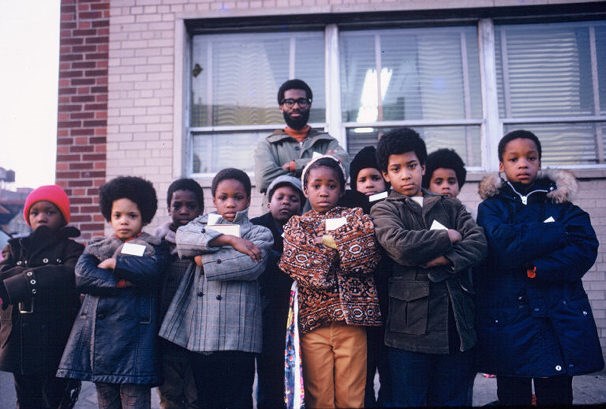In 1975, The New York Times poignantly described The East as “a bit of Africa on a short block.”
The Bed-Stuy organization, located on Claver Place near Fulton Street, was a hub for culture and education that nurtured Black pride and self-determination in the community.
Among its offerings was the state-certified Uhuru Sasa schools that opened in 1970. Along with a traditional curriculum, elementary school students participated in daily Black-story hours and learned Swahili, a Bantu language that’s spoken in a large swath of East Africa and the Congo region.
The East also offered dance and music programs, established a food co-op and publishing house, and sold a range of products from the Black Diaspora, including African fabrics and natural herbs from the West Indies.
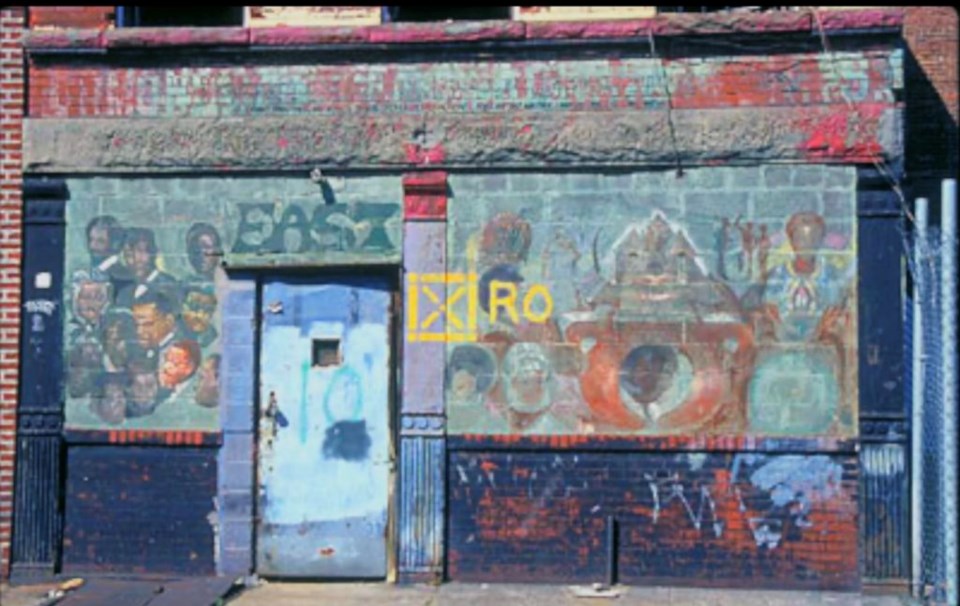
Jitu K. Weusi, formerly known as Leslie R. Campbell, was the legendary Bed-Stuy educator and activist who founded The East in 1969.
“We were originally concerned about the Establishment institutions not developing a cultural awareness and a self-help attitude among our people,” Weusi, who died in 2013, told The Times about the motivation to create the organization.
The East no longer exists, but its legacy continues to thrive throughout Central Brooklyn, Tayo Giwa and Cynthia Gordy Giwa told BK Reader.
The husband and wife team documented the history and legacy of The East in their feature film, The Sun Rises in the East, that’s slated to premiere in 2022.
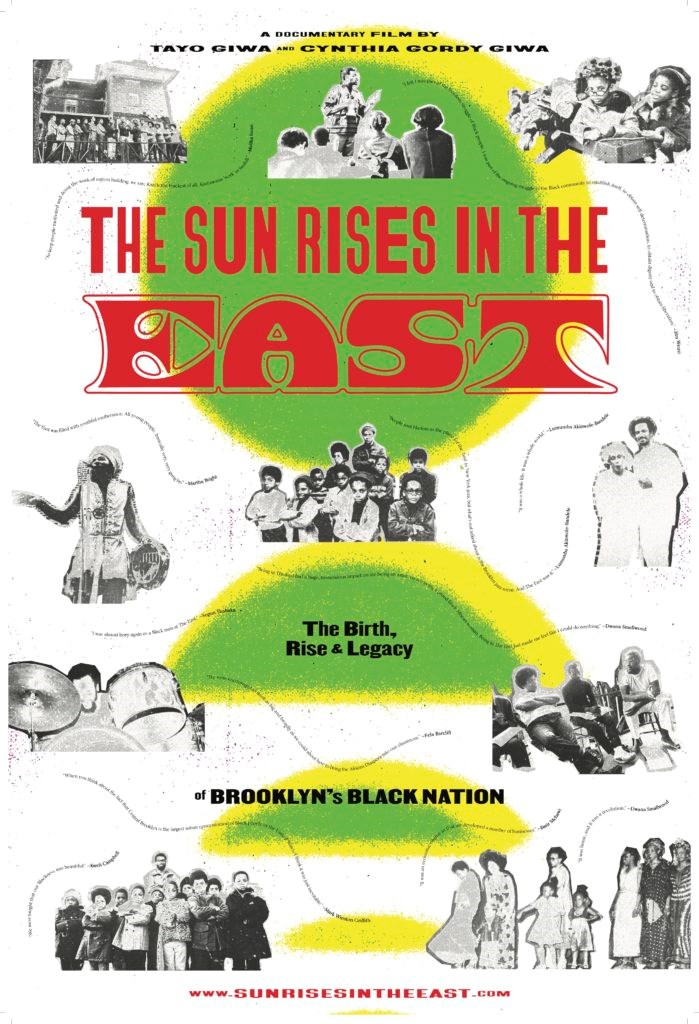
Planting seeds of Black pride
The Sun Rises in the East celebrates the organization's legacy and preserves its history, as the original members age and the community gentrifies.
“This is a significant organization in the movement for Black liberation that touched not only Brooklyn but also people in the movement around the country and the world,” Tayo said.
“We wanted to lift up and amplify that history. When you think about the Black Power era, you should know the name The East because they were a really significant player in that space.”
The filmmakers are Bed-Stuy residents who see The East’s legacy in the community.
“There’s this Black pride that people have in Bed-Stuy,” Tayo said. “You see it in the number of Black businesses in our community. You see the red, black and green colors [of Black liberation] as you're walking around the neighborhood.”
Cynthia noted that long-standing institutions in the community, such as the International African Arts Festival and Afro-centered preschools, were founded by members of The East.
“A huge theme of this film is self-determination and what Black self-determination looks like in action,” Tayo explained. “That's a really timely question now, when you have young Black organizers thinking about the kind of society that they want to see and build in the racial justice movement.”
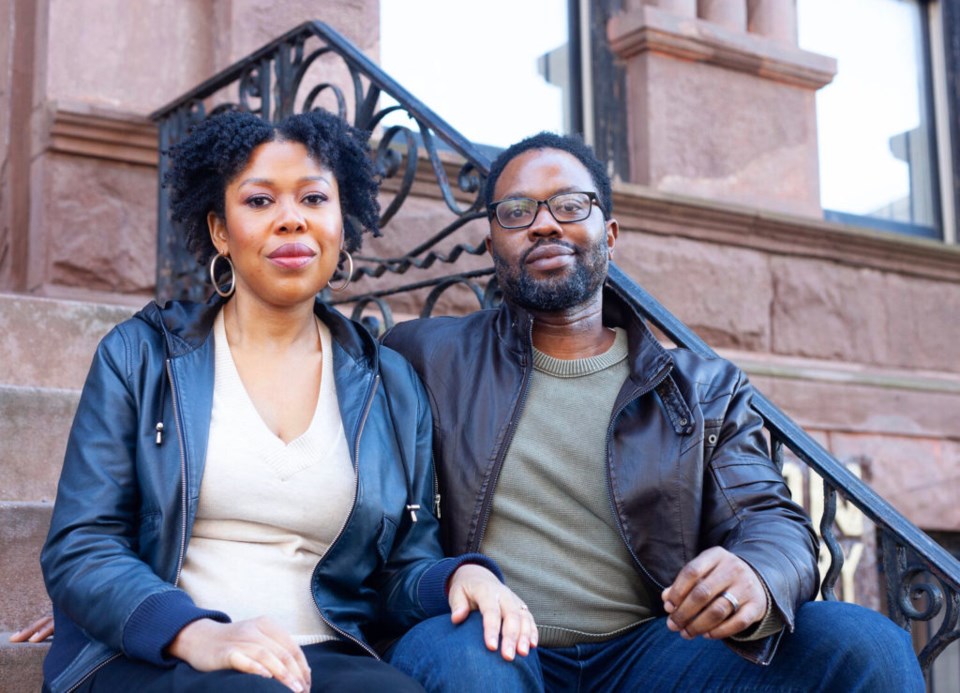
Telling the story
This is a multi-layered film that also examines the challenges that caused The East to dissolve, which included government surveillance, financial hurdles and gender politics.
The couple, new to filmmaking, has a large social media following as the creators of Black-Owned Brooklyn, a publication and Instagram account that spotlights local Black businesses.
The Sun Rises in the East is their debut feature-length film, following their 2020 documentary short, Soul Summit: Doin’ It in the Park about Soul Summit in Fort Greene Park. They directed, produced and wrote the new film themselves, figuring things out as they went along.
This new film project came about as a natural expansion of their Black-Owned Brooklyn work, as they thought about creating new content about local history and culture. After learning about The East, the duo noticed that there wasn’t much information online about the organization, so they did some research.
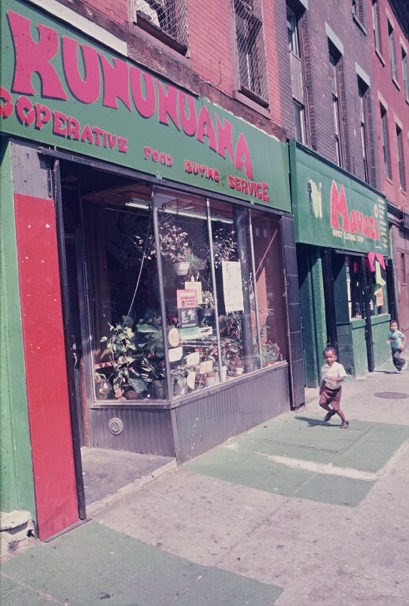
They assembled the story through a mix of sources, including combing through obscure records at NYU’s Special Collections Center and materials directly from The East members.
“We interviewed at least a dozen people who had a ton of rich historical material,” Cynthia said.
Tayo recalled thinking during those interviews that these were really significant historical documentation from primary sources, who are now seniors recounting events from their 20s.
“We have to tell their story!” the couple told themselves.
Since the release of their trailer, lots of people who had a profound experience connected to The East have reached out to affirm the stories in the film and share how the organization impacted their lives.
The Giwas plan to screen the documentary at film festivals in 2022 and later screening it for local and national audiences.

